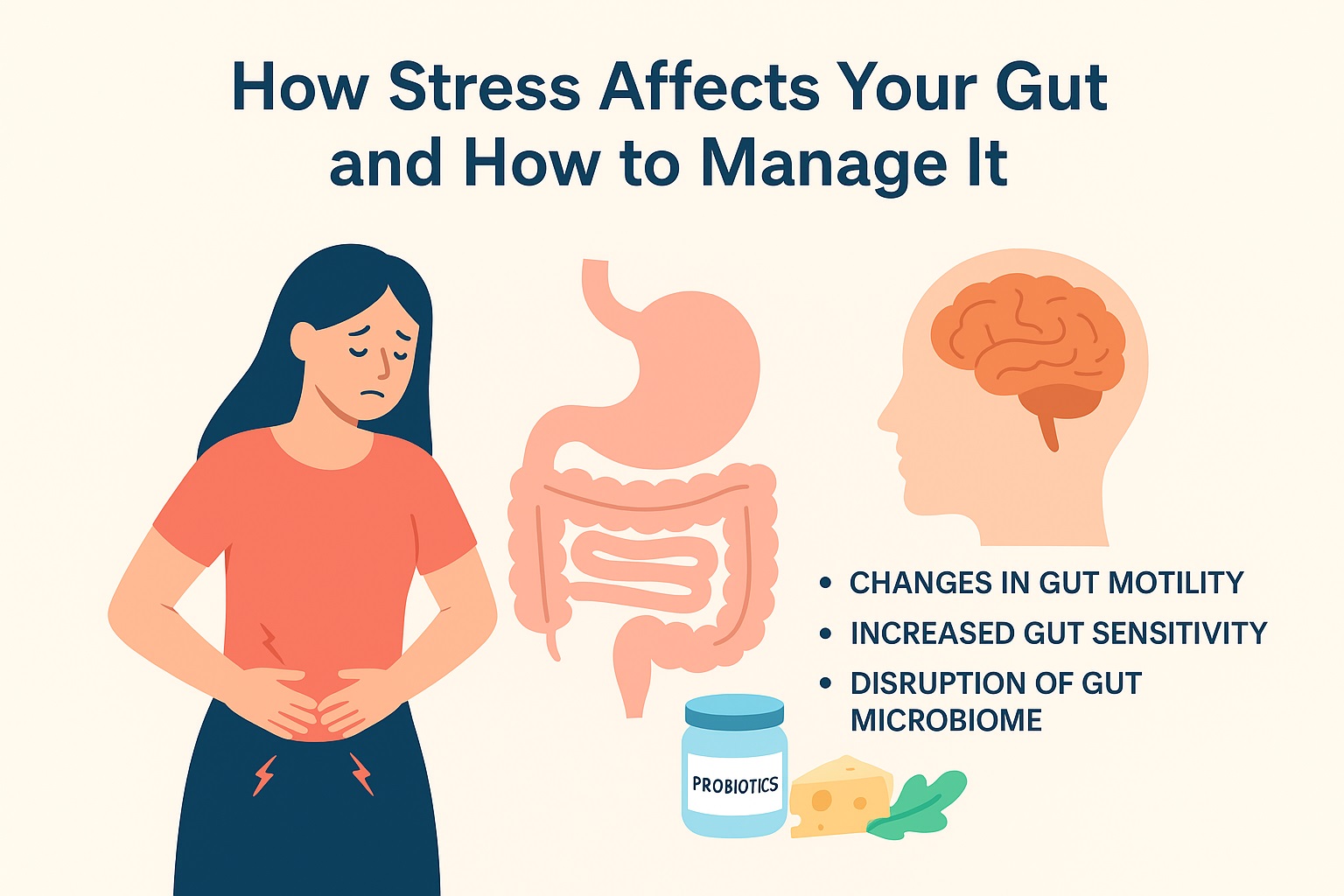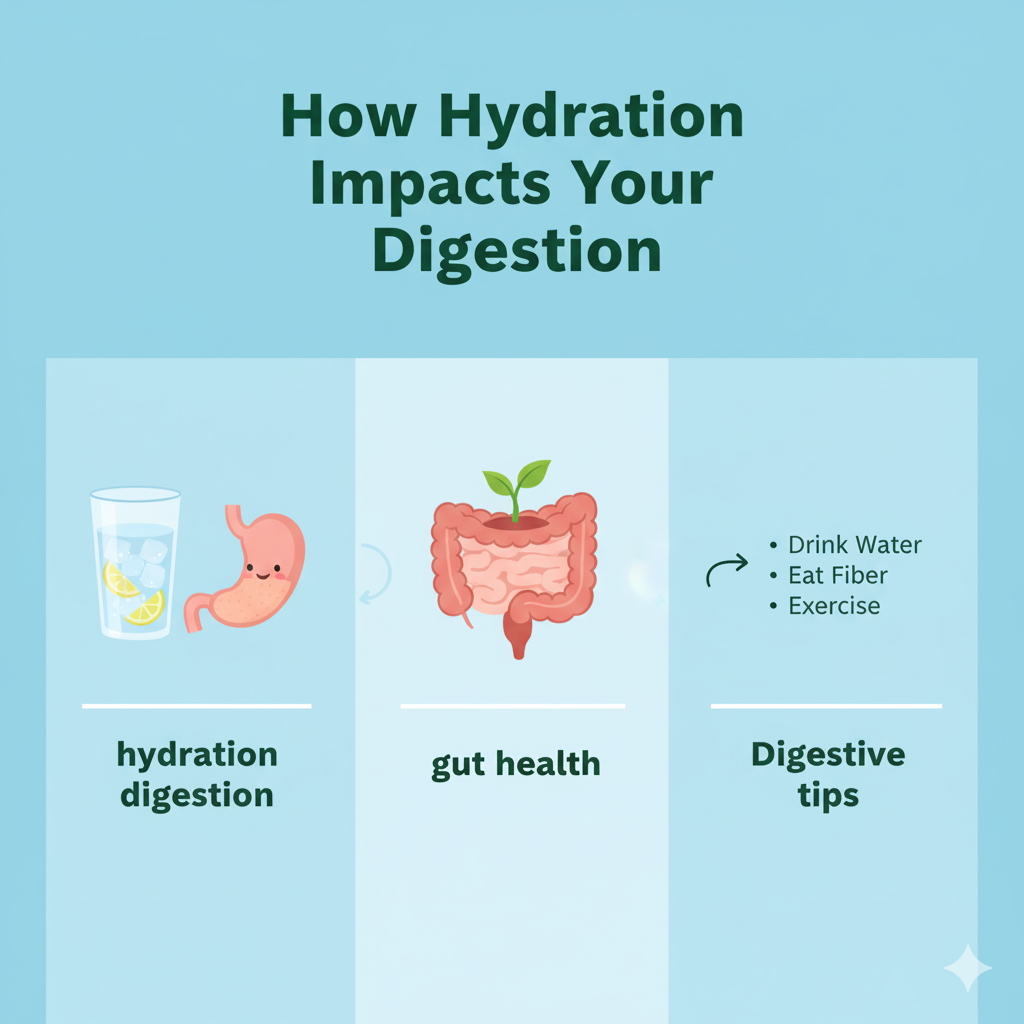Modern life is full of challenges, and stress has become an unavoidable part of our daily routine. While many people associate stress with headaches, fatigue, or mood swings, few realize how strongly it impacts the digestive system. Your gut and brain are deeply connected, and when stress levels rise, your gut health can suffer. This article will explore the science behind the stress–gut health connection and provide practical strategies for supporting both mental health and digestive wellness.
Understanding the Gut-Brain Connection
The gut and brain communicate constantly through what is known as the gut-brain axis. This two-way communication system involves the nervous system, hormones, and the trillions of microbes living in your digestive tract.
- The role of the vagus nerve: It acts like a communication highway between the brain and the gut.
- Neurotransmitters: The gut produces chemicals like serotonin and dopamine, which affect mood.
- Gut microbiome: A diverse community of bacteria influences both digestion and emotional health.
👉 When stress affects the brain, it quickly influences the gut, and vice versa.
How Stress Affects Gut Health
Chronic stress doesn’t just affect your mind; it disrupts your digestive wellness in several ways:
1. Changes in Gut Motility
Stress can speed up or slow down digestion. This may cause diarrhea, constipation, or uncomfortable bloating.
2. Increased Gut Sensitivity
Anxiety and stress often heighten gut sensitivity, leading to stomach pain, cramping, or a condition known as Irritable Bowel Syndrome (IBS).
3. Disruption of Gut Microbiome
Stress alters the balance of probiotics (beneficial bacteria) and harmful microbes, reducing your gut’s ability to absorb nutrients effectively.
4. Weakening of Gut Barrier
Stress hormones like cortisol can increase gut permeability, also called “leaky gut,” allowing harmful substances to enter the bloodstream.
5. Inflammation and Immune Dysfunction
Prolonged stress causes chronic inflammation, which affects both mental health and digestive wellness.
Signs That Stress Is Affecting Your Gut
If you experience any of these symptoms during stressful periods, your gut may be sending you warning signals:
- Frequent stomachaches or cramps
- Bloating and excessive gas
- Irregular bowel movements (diarrhea or constipation)
- Loss of appetite or sudden food cravings
- Increased acid reflux or heartburn
- Fatigue and low mood
The Role of Probiotics in Stress and Gut Health
Research shows that probiotics can help restore balance in the gut microbiome and reduce stress-related digestive issues.
- Lactobacillus and Bifidobacterium strains have been linked to reduced anxiety and improved digestion.
- Probiotics support the gut barrier, lowering inflammation caused by stress.
- They influence neurotransmitter production, which helps regulate mood and mental clarity.
👉 Incorporating probiotic-rich foods like yogurt, kefir, sauerkraut, and miso can improve both digestive wellness and emotional balance.
Practical Tips to Manage Stress for Better Gut Health
1. Practice Mindful Eating
Slow down, chew thoroughly, and eat without distractions. This reduces stress on the digestive system and improves nutrient absorption.
2. Adopt Relaxation Techniques
Meditation, yoga, and deep breathing exercises lower cortisol levels and promote gut relaxation.
3. Exercise Regularly
Moderate exercise like walking, swimming, or cycling supports both mental health and gut function.
4. Prioritize Sleep
Poor sleep increases stress and disrupts the gut microbiome. Aim for 7–9 hours of quality sleep each night.
5. Add Gut-Friendly Foods to Your Diet
Incorporate probiotics, prebiotics (like garlic, onions, bananas), and fiber-rich foods to strengthen your digestive system.
6. Limit Caffeine, Alcohol, and Processed Foods
These substances can worsen stress-related digestive problems. Replace them with herbal teas and whole, nutrient-dense meals.
7. Seek Professional Help if Needed
If stress and digestive issues become overwhelming, consider consulting a gastroenterologist, nutritionist, or mental health professional.
Conclusion
Stress has a powerful impact on your gut health, and neglecting this connection can lead to long-term health issues. By understanding the gut-brain axis and taking proactive steps—such as managing stress, improving diet, and supporting your microbiome with probiotics—you can restore balance to both your body and mind.
Remember, true digestive wellness doesn’t just come from what you eat, but also from how you manage your thoughts, emotions, and daily habits. Nurture your mind, and your gut will thank you.




